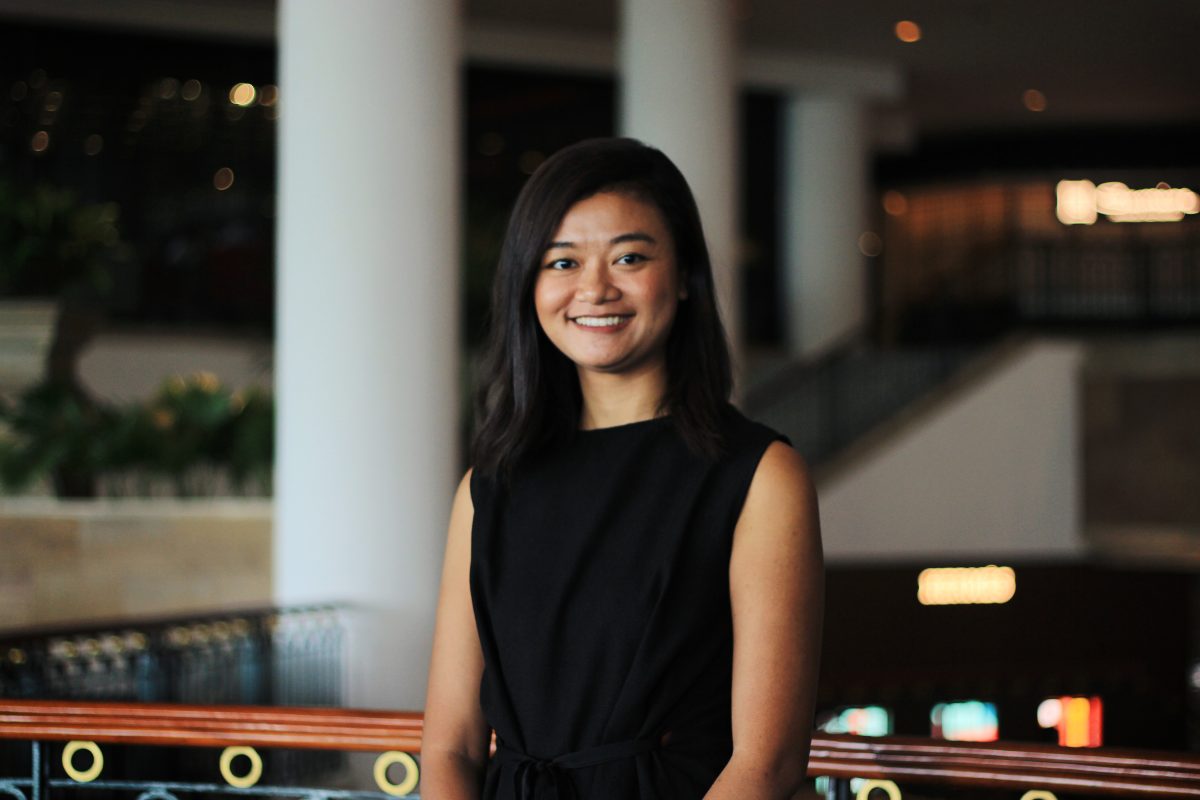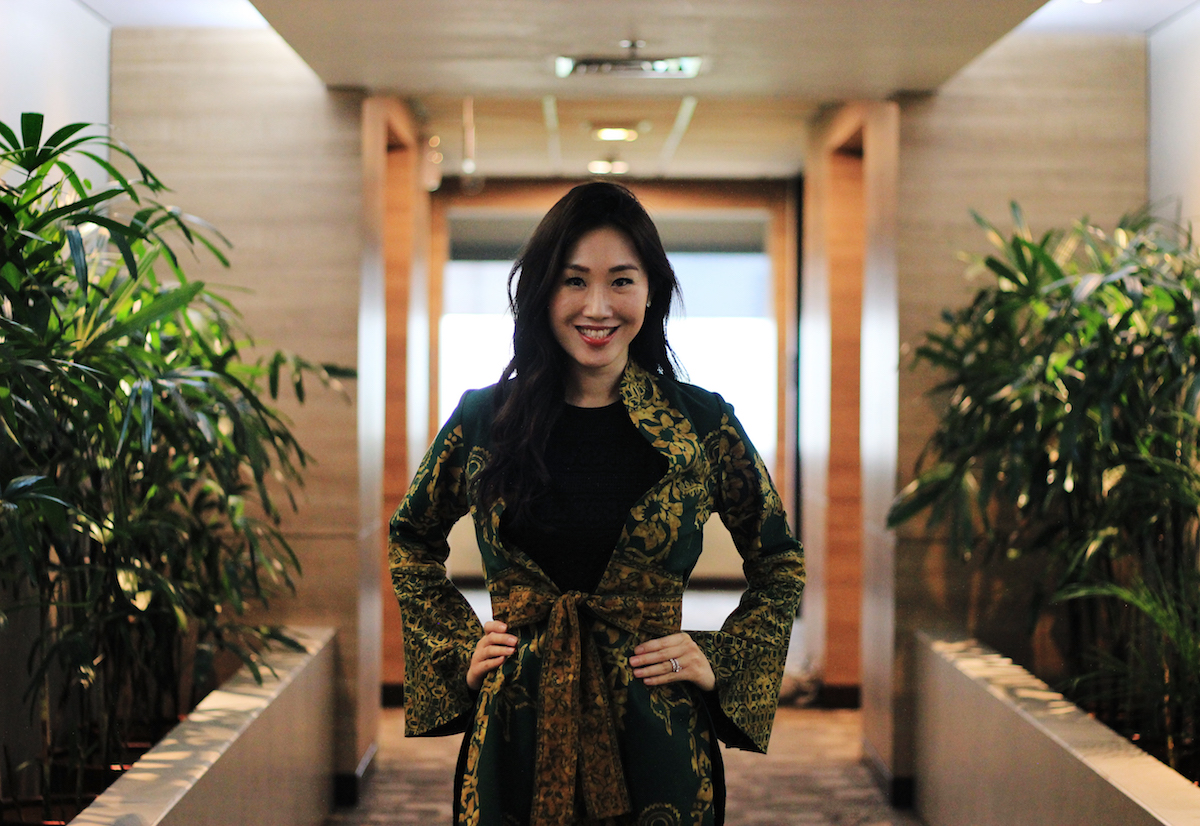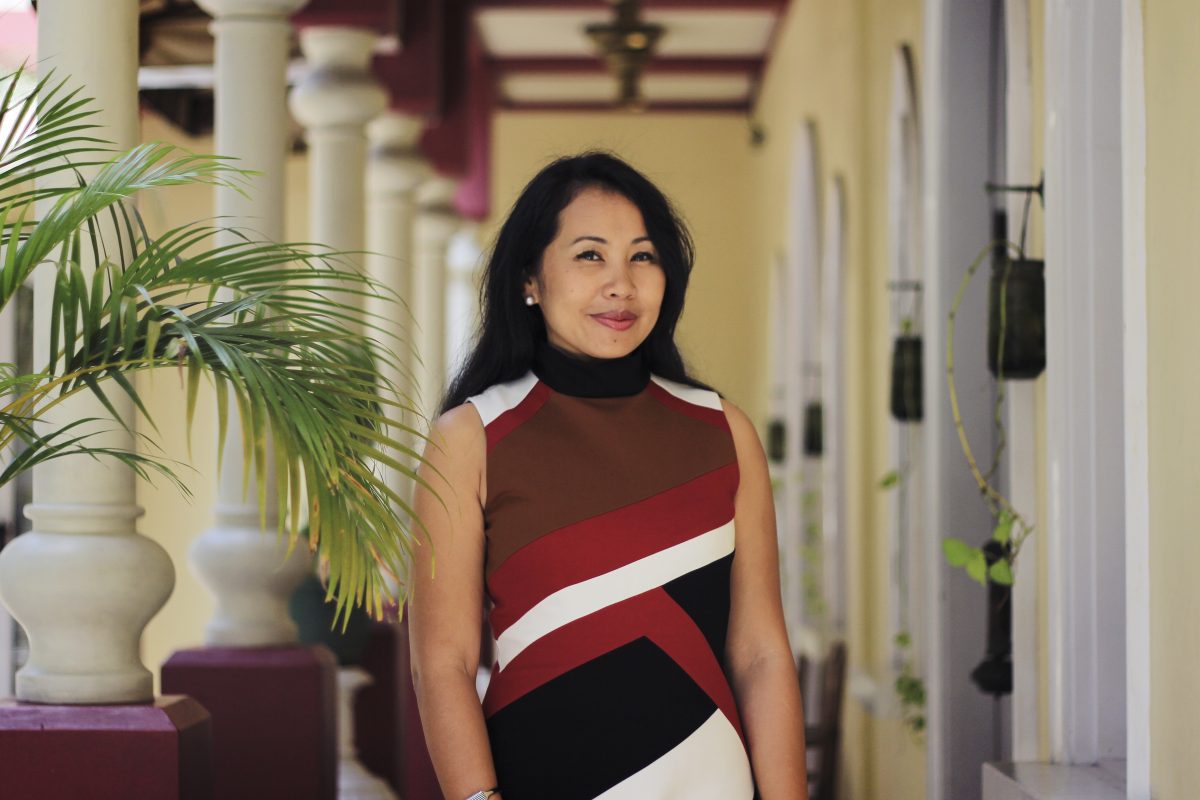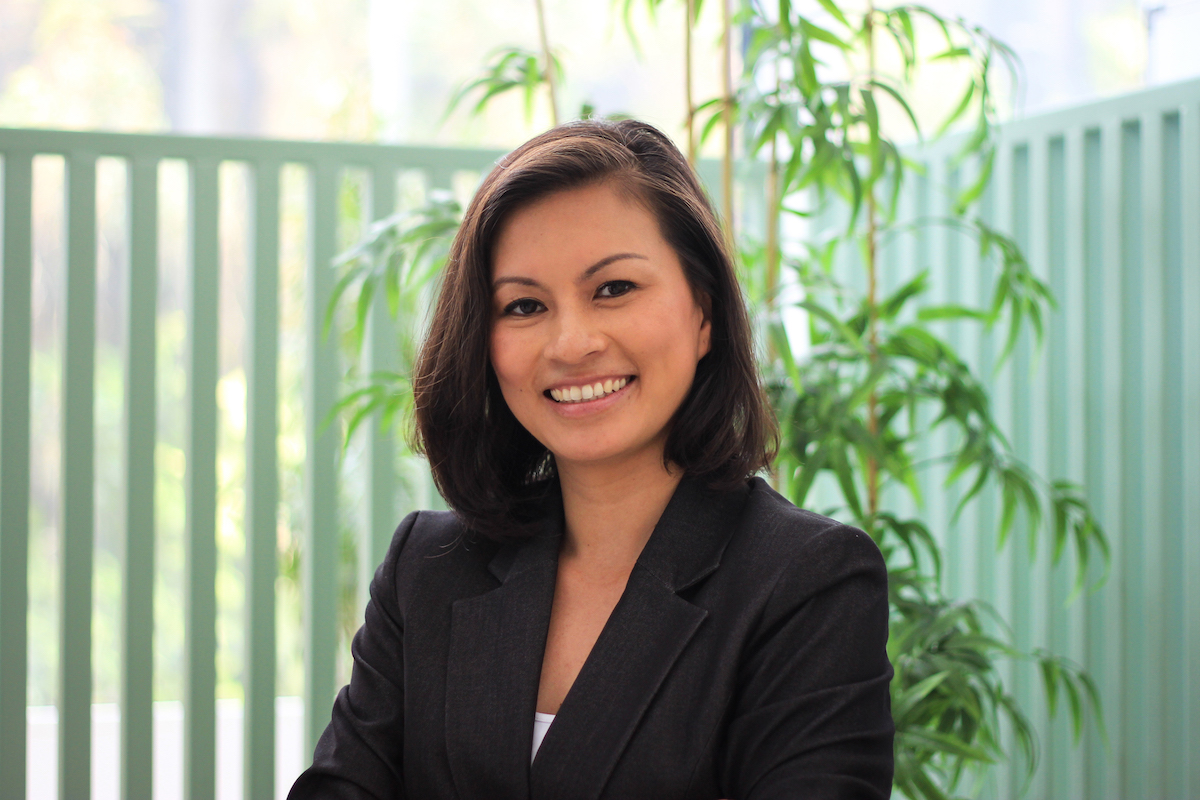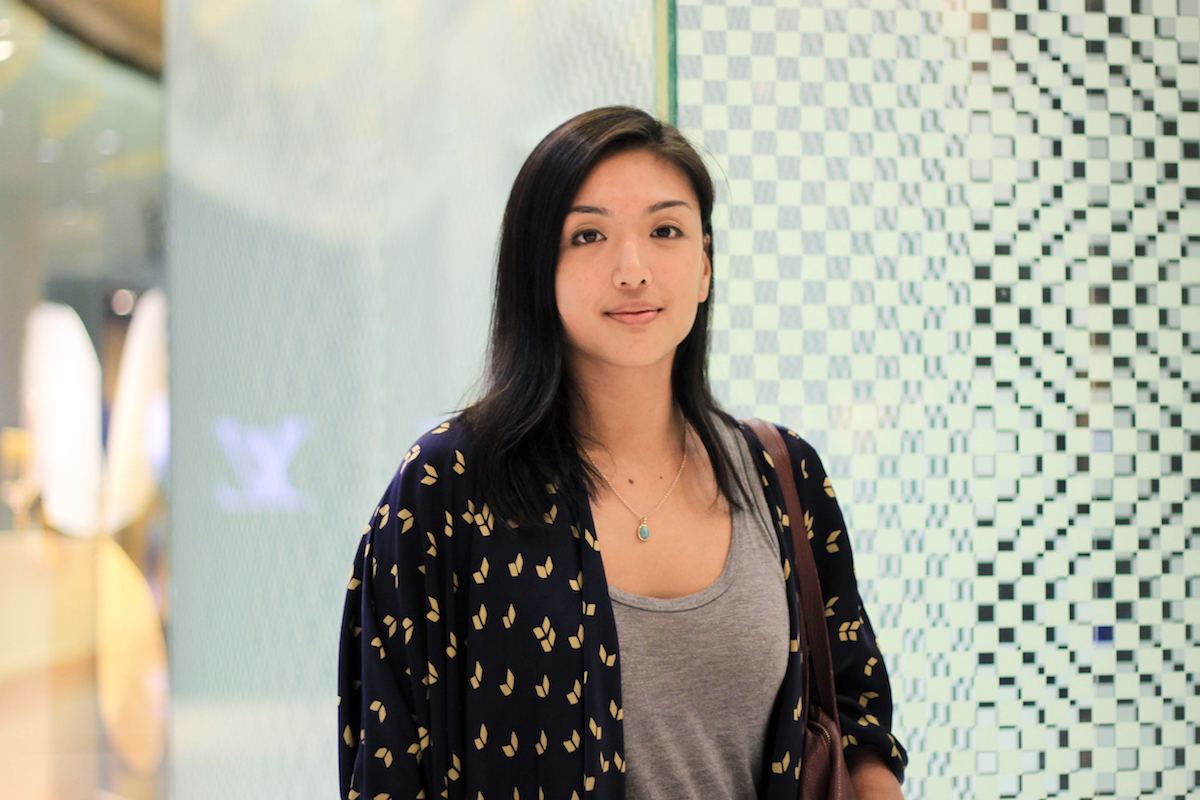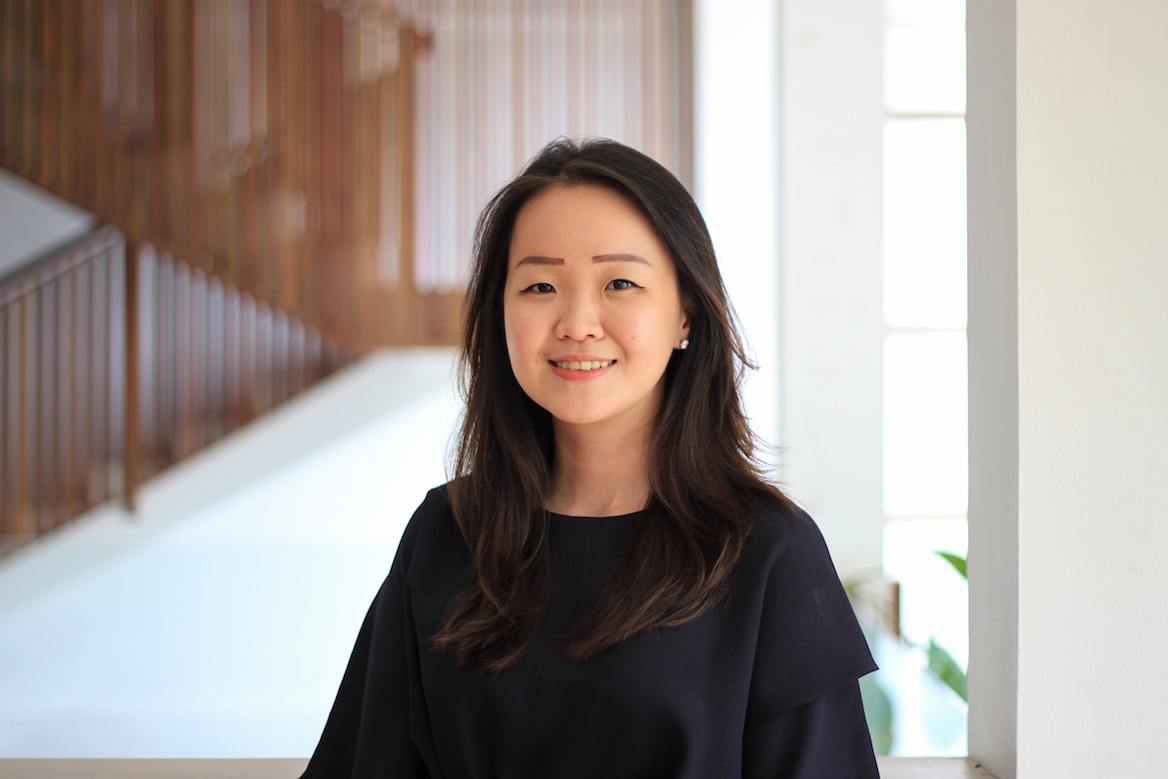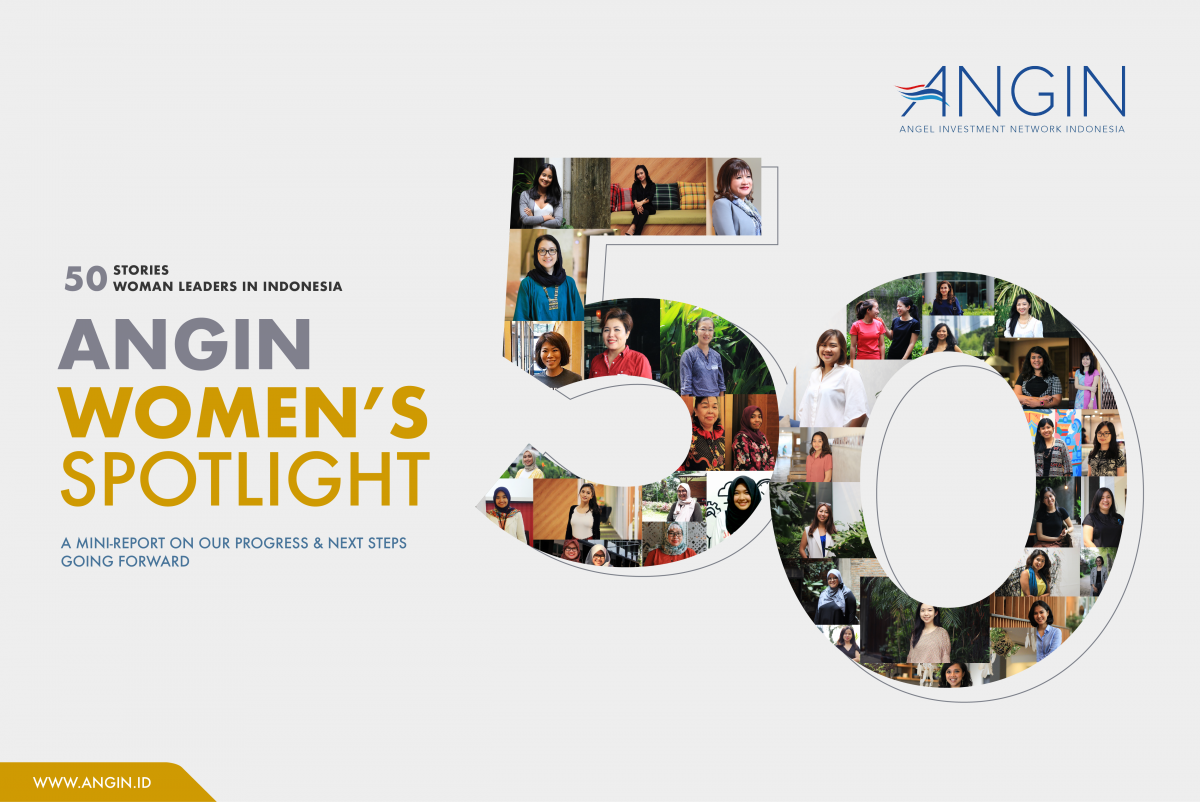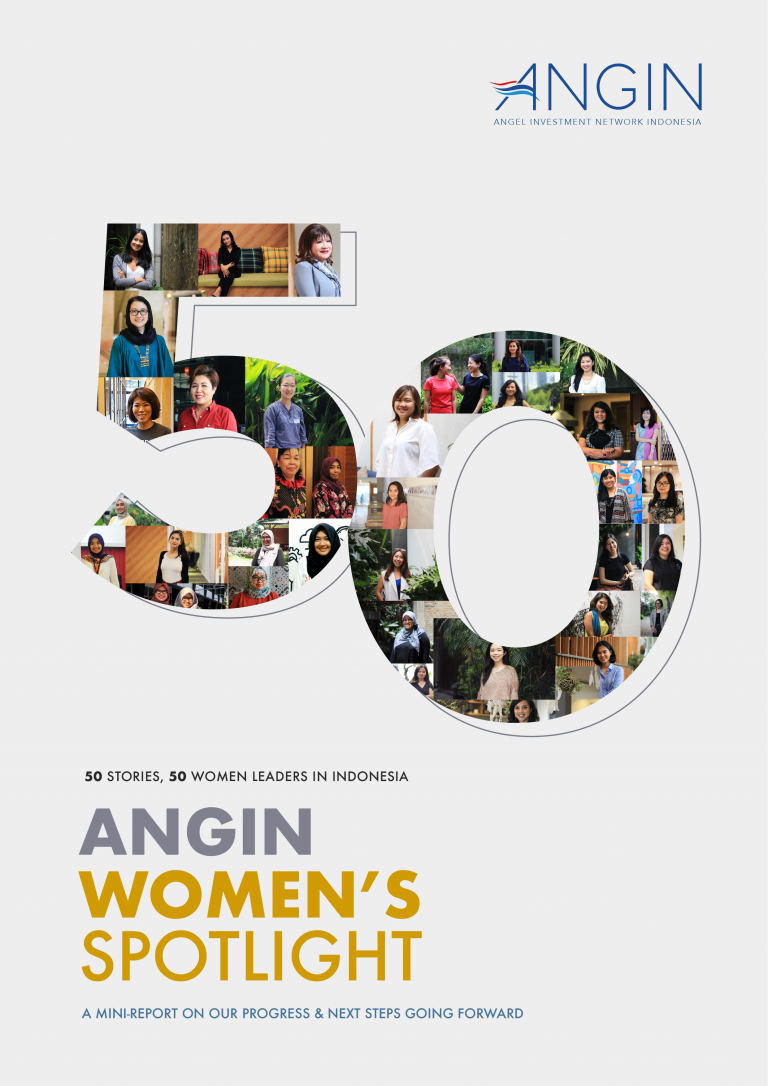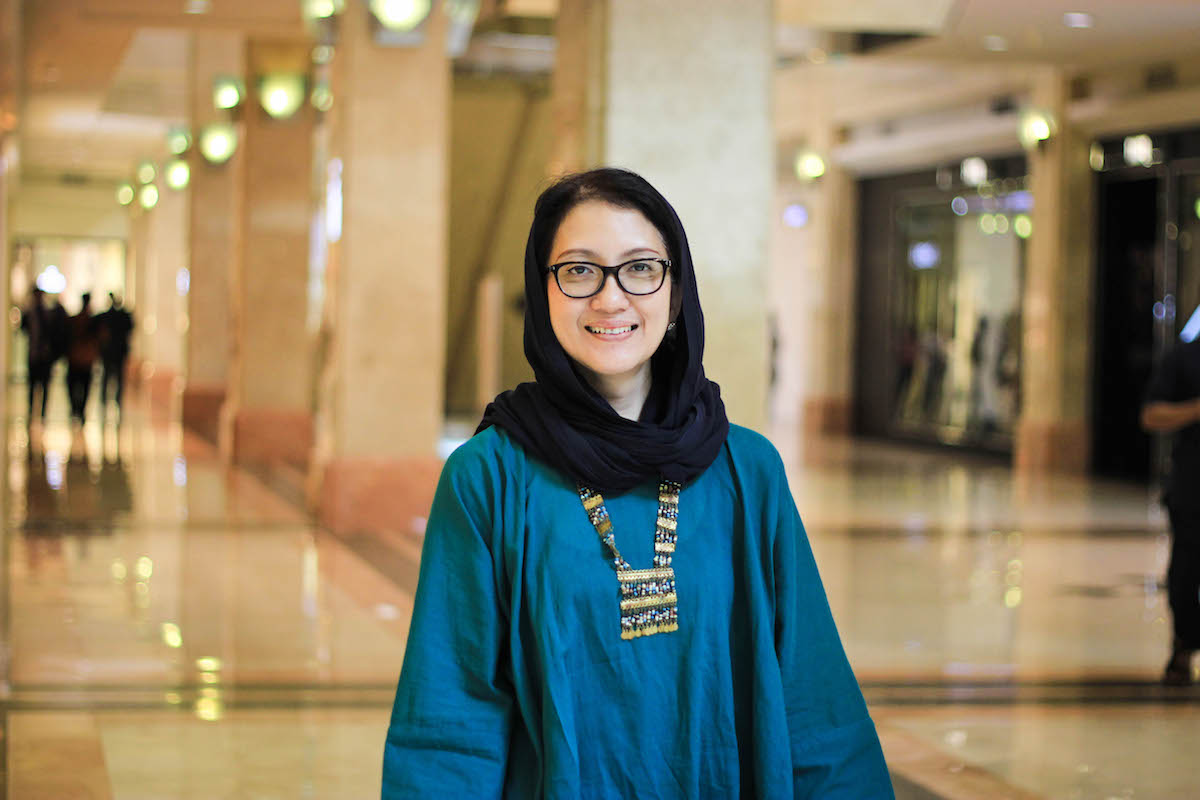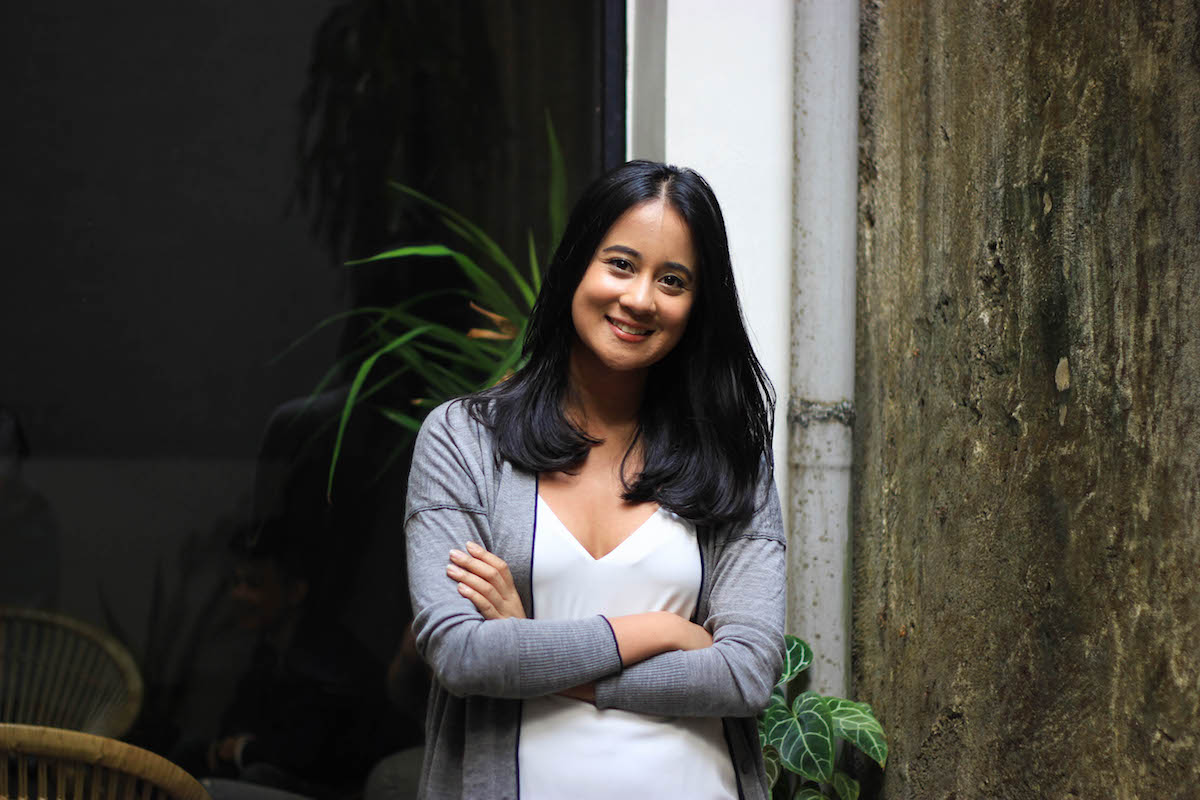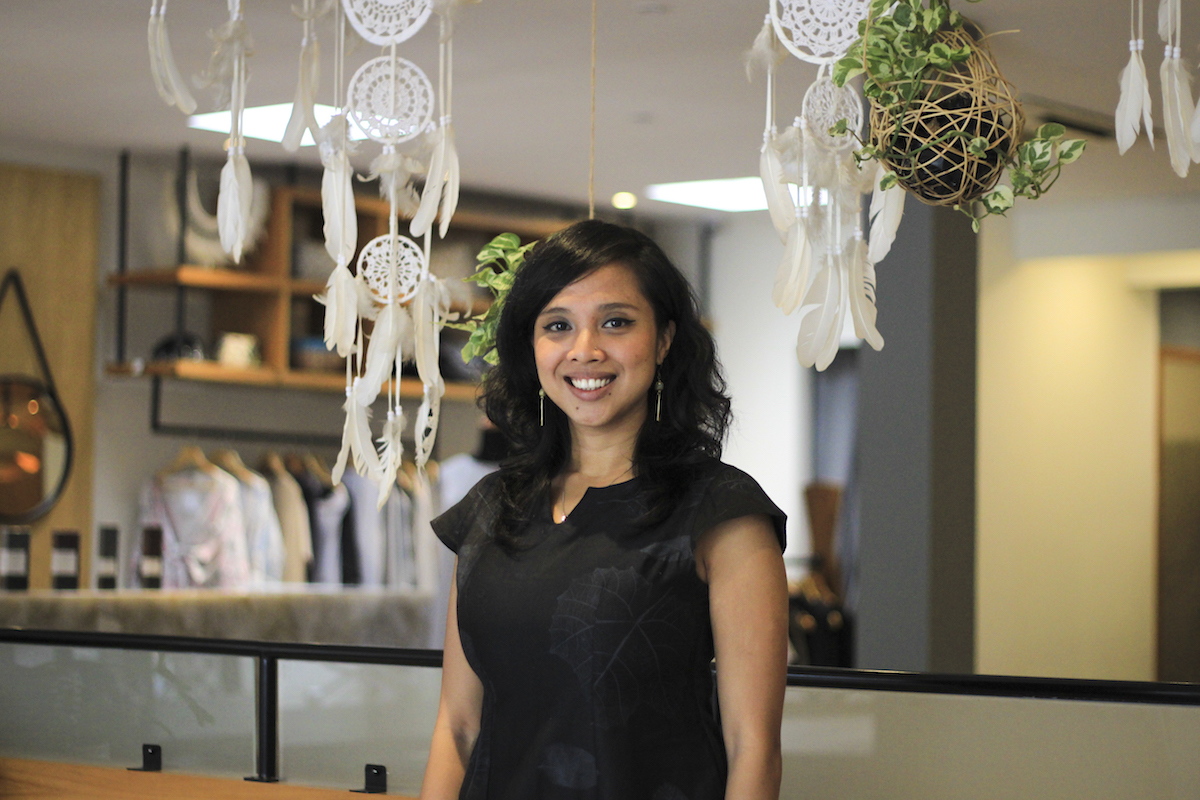Tell us a bit about yourself.
My name is Reky Martha and I am co-founder and current president of Hoshizora Foundation. I started Hoshizora in 2006 when I was a student in Japan at Ritsumeikan Asia Pacific University (APU). Basically while doing part-time jobs, my co-founders and I used our money to help out kids that were dropping out of school in Indonesia. My friends and I started a community to support about 14 street children to get back to school. We set aside our lunch money for one month to pay for the school fees of elementary school students. With more and more traction coming in, it just grew from there. We officially registered as a foundation in Indonesia in 2010. We’re also registered in the United States. Now we’re supporting 2214 students from elementary school to university. We have 25 full time staff, fully paid with benefits – a team in Yogyakarta and a partnership team in Jakarta. And we’re looking to grow more.
Did you always know you were going to be in the education space?
I have always been inspired to be an educator; I feel that Indonesia faces many challenges in education. For instance, public schools are supposed to be free but they’re not. Even today, almost 1 million students drop out of elementary school and never enter middle school. In Flores, for example, I saw so many little kids, with their tiny feet, walking for two hours to go to school. In the heat, you know, with no access to fresh water. How do you expect these kids to learn how to read?
As a person who was lucky enough to get scholarships to study in Japan and Canada and land a job in the United States, I feel that the only small way I can contribute back is by providing better education for Indonesian children. And right now we’re trying to reach the children who don’t even have access to school. We’re here to support whatever the government is doing and work with the private sector.
What exactly does Hoshizora do?
We are an organization that provides access to education through our scholarship program, from elementary school to university. We have about one thousand individual donors right now; 100 percent of these one-to-one donations go to the children (80% in the form of a fund, 20% for capacity-building programs). Apart from this scholarship, we truly believe that character-building is the main ingredient to a more successful education system in this country. We do this through our forum, and through meeting our children and providing mentorship every six months. Our area coordinators are closely monitoring our children monthly as well. We work to be sustainable by having various sources of revenue streams to maintain our operation and management professionally.
So Hoshizora pretty much provides scholarships, but not your usual scholarship. We do a lot of capacity building to help the children grow. We have our own Hoshizora curriculum book, filled mainly with soft skills, for children in every grade. It starts from knowing yourself and understanding your emotions, all the way to critical thinking and problem-solving. And it’s fascinating because we’ve been working with the same kids for 12 years now; one of my youngest kids back in 2006 is now in university and I can totally see the changes. They are not only growing as smart and curious people, but they also become empathetic leaders who now are able to create job opportunities for others. Seeing these longitudinal changes firsthand and through our data really validates our model.
What have been some of the biggest insights or takeaways that you’ve had running Hoshizora over the past 12 years?
I think first of all, education is a very important sector but the urgency is often forgotten because it’s not very sexy. When we started this, we did it as a volunteer activity community, but it wasn’t going to go anywhere like that. The reason why communities and nonprofits are dying so often is because we’re not viewing them as valuable as companies or enterprises. So after four years we realized that we cannot lean on volunteerism. We are still open for volunteers at specific events and giving a chance for young people to experience the work we do, but we do it full time now. And the people who are working full time with us understand that working in the education sector is important, and that they are as valuable as the people working at companies. So it’s competitive enough for young people to move from Jakarta to our headquarters to Yogyakarta, to be part of our team because we value them.
Second of all, sustainability is always a problem. In the beginning, we did lean on grants and donations. The reason why we have two revenue streams now is because we want to make sure that individual donors are able to see 100% of their donations go to the children. We built our own social enterprises that is contributing to our operations, and we also do brand activation for corporates and companies. And to ensure sustainability, we build three-to-four year partnerships with companies, rather than just one year.
Hoshizora is also learning that the impact we’re having on these children is deep impact. In twelve years, we’ve had 2,200 kids in our program. We have a formula where our program strives for deep impact that is replicable in different rural areas in Indonesia so we can also scale up our impact.
How does Hoshizora Foundation balance public sector and private sector? Where do you fit in?
We’re looking at an ecosystem here, and I think if we break them apart we’re not going to get anywhere. There’s a lot of ego involved in it for sure. So we’re looking at how we can bring everybody together in the ecosystem. The ecological framework that we use is Bronfenbrenner’s Ecological System, which stems from child development theories. We need to stay true to our purpose, which is educating children, and we’re using a lot of positive psychology and social emotional learning frameworks in our work.
To bring people together, we build partnerships. Our closest partners right now are from the private sector looking to create shared values. Obviously we’re here to support the government, even though we do not have any direct collaboration with the them. They have their own system. We’re moving forward at a different pace. We tend to work with the private sector because they can move faster, with less bureaucracy. The impact can be fulfilled within months and we can measure it. A clear measurement is very important for us to know what’s working, what’s not working out, and to keep improving on that.
When we’re working with the kids, we get some social enterprises working with us; we give scholarships to children of mothers who are working for a specific social enterprise, for example. So we’re opening that collaboration where other social enterprises can work with the parents and make sure that these parents are actually delivering good quality of work so that their children can get our scholarship. At the same time, we’re opening a space for corporates to work with schools and teachers, mainly on capacity building. It’s building a whole community together with the hope that in few years we can exit when the quality of life is better for that community.
Is Hoshizora the only thing on your plate? What else are you involved in?
I am still trying to find out the best way to give access to education. I was involved in Humanitree, where I want to see if there is a faster way using technology to provide access to education. Perhaps not necessarily formal education; you know, education is not about getting a certificate but really getting skills that people need, such as critical thinking. So how can we give access to education to children out in Papua or Kalimantan, in a way that they can exercise their critical thinking and problem solving? Hoshizora is one way of tackling that challenge, in a deeper way. But it has to be paired up with something that can provide faster access to education. In a way, it’s just finding ways to tackling different issues within the education space while heading in the same direction.
As entrepreneurs, we cannot stop learning and exploring ideas. We need to stay focused on what we’re doing, but not closing the door to exploring other ways to tackle challenges. I find it very valuable to be in the startup ecosystem in Jakarta, where startups rise and fall every second. To survive and to find the best way to provide solutions to challenges, it’s quite challenging.
As one of the earlier female entrepreneurs entering the ecosystem back in 2006, how has it been being a female entrepreneur? How have things changed from 2006 until now?
Sometimes people are surprised that I’m doing this full-time and dedicating my life to provide access to education. When we incorporated Hoshizora as a foundation, that meant dealing with legal, tax, and building good organizational processes and structure. It’s a lot of work and I’m proud that I have two other strong female co-founders to go through these tough times. Oftentimes when people see this position being held by a female, they have doubts. Somehow they think that when a female gets married or has kids, obviously they’ll only work part-time. Sometimes when I walk into a meeting, I am assumed to be the secretary or PR person. So when I tell them, yes, I’m leading this organization 100 percent, full-time, it surprises people.
Half of my team members are male, so I think gender equality in leadership doesn’t necessarily mean having an all-female team. We need males supporting female roles. I find that in the past two years, there have been more support given to female entrepreneurs. A lot of attention is given. But I also encourage males to understand what females are doing and going through. Because if males don’t understand, it’s still going to be imbalanced. Men should still be encouraged to work with women. There should be equal opportunity within the whole ecosystem for men and women to work together.
What are some strengths to being a female entrepreneur?
Over time I learned that some of the strongest points of leadership are vulnerability, flexibility, and adaptability – qualities that female leaders often possess. I can give you an example. So, being sustainable is a challenge for every non-commercial organization. We don’t receive a lot of grants for our operations and management. Two years ago, for example, I was worried about being able to pay my team. Rather than framing it negatively, I communicated it as, “Hey, I’m trying to be sustainable. Give me ideas on how I can be more sustainable.” I think female leaders are quite good at articulating and sharing that in a more positive framework, and it results in leadership that is more agile, and partnerships that are more open. Saying, “This is our condition, give me ideas,” instead of saying, “We’re good to go, we’re okay,” or pretending that we’re okay because of pride, is far healthier.
And definitely over the past two years as a female leader overseeing 25 full time staff, I’m also growing as a person and I couldn’t do it without my team. Vulnerability, flexibility, adaptability, staying focused, and being persistent are all things I am learning everyday. Self awareness and self management – those are key to the recipes for creating a harmonious working environment. I think female leaders have the advantage of being able to be aware of what’s going on, nurturing that empathy within team members as well.
What challenges do you face as an entrepreneur?
Honestly speaking, it’s hard to balance a personal life and surviving in the startup ecosystem in Jakarta. Being on top of what you’re supposed to do and being in the community, it takes a lot of hours. My team is in Yogyakarta while I’m in Jakarta, so going back and forth takes a lot of time. It becomes challenging to keep up a healthy lifestyle. Being able to exercise every morning, cooking my own food, or even keeping up with other parts of life. I’m still learning how to do that.
Jakarta is a bubble in a way. When I go to Sumatra, Kalimantan, Flores, or other remote areas, the working style is very different. Leadership has to change all the time. When I’m back with my team in Yogyakarta, I have to switch back to what’s best for them. So that adaptability, while holding and stimulating the team to grow is quite challenging.
Have you faced any specific challenges as a female in this field?
Society – especially Indonesian society – has a lot of expectations for females. It can be challenging sometimes when people ask me if I have time to take care of a partner or whatever. I think debunking society’s expectations for females is quite challenging. Funny thing, before I moved to Indonesia I used to shave my head completely, just to debunk the notion that females need long hair to be pretty. I haven’t really found a way in Indonesia to challenge those mindsets, of what society expects from females.
What else do we need to do to support female leaders in Indonesia?
Engaging the men to talk about how to balance roles in society is important. Because if it’s just the females going strong, I don’t think it’s going to work out as nicely. The males have to understand what the females are doing and engage in active discussion. If a woman is exploring higher career options, what kind of actions can the male can do at home, for instance, to support that? It cannot go just one way.
And the feminist movement, it’s not just about females supporting females. It’s also about males supporting females and having open discussions on that. I don’t think we have a lot of those conversations in Indonesia — especially challenging male Indonesians to have an open discussion. What does it mean for them to support a female leader? More discussion is needed, and an action plan can come out of that, a movement of some kind. But changing mindset, especially in a culture where it’s quite patriarchal, it’s going to take some time. I think within the startup ecosystem, which is quite vibrant and increasingly run by millennials, if we start opening the discussion there’s going to be positive momentum to disrupt what exists. That can be a start.
How do you personally try to keep balance in your life and practice mindfulness?
Yeah, so I like climbing trees. It’s my meditation, but it’s not always accessible. So every morning for meditation and yoga, stretching is a must for me. My morning glory is my morning glory, and I do it at least an hour before I touch my phone. So that’s one thing that I can do anywhere I go.
The second thing is a component of social-emotional learning: practicing self awareness, self management, social awareness, social responsibility, and responsible decision-making. This can be through a practice where we check our intention every second. For instance, why am I doing this interview? What’s my intention? Will it be useful? Questioning everything has become a habit for me to help choose and prioritize. And it helps me make more responsible decisions.
Another thing is emotional literacy. I think in a country where most people are still in survival mode where the basics – how do I eat, how do I earn money – aren’t fulfilled yet, emotions are often the last thing people think about. We’re not told or taught to recognize our emotions and verbalize them. Sometimes we’re actually sad and lonely, but it comes across as being angry just because we don’t know how to label that emotion. What I’d like to do with my team is to encourage them to express and recognize their emotions, by checking in and saying, “Hey, I’m trying to understand what are your feelings, to help you in understanding and verbalizing them.”
So in a nutshell, we need to practice mindfulness all the time.. And I’d like to find more spots to climb trees in Jakarta.
What’s your long term vision for yourself?
The ultimate goal is to be an awesome grandmother, with a big house, so I can invite everybody to take a break from their lives and have meaningful conversations over a big meal in beautiful nature. That’s the long term goal (laughs). But, I think in the next five to 10 years I’m very keen on finding a better solution to reduce dropout rates. I’m super passionate about finding better ways to reach out to more children. It could be through Hoshizora, or through the digitalization of ways to provide access to education like creating learning tools for critical thinking and problem solving.
Do you have any advice for the younger generation – kids who want to be future leaders?
I think taking time to understand who you are is very important, especially in our world where technology, social media, ads dominate. Everything is changing so fast that it’s easy to think that something is our desire while it’s actually other people’s desire. For example, being a founder of something – a lot of the younger ones want to be a founder of something, but honestly it’s not the question of being a founder or not being a founder. It’s what problem you want to solve. You need to question yourself: why was I born in this world, what purpose am I fulfilling? Because everybody is an important piece of a larger puzzle. No matter how small they are, if you take out the other pieces, the puzzle won’t be complete. Every person is that important, but to know what function your puzzle piece serves is a different question, right?
And I think we are all running too fast, getting all this information without pausing and thinking, okay, is this what I want? Constantly check your intentions and ask, “Why do I want to do this? What is the greater benefit of this? How am I going to be sustainable?” Questioning yourself will activate the neurons in your brain and help you stay on top of your passions – especially if you are passionate in solving challenges through entrepreneurship. Being a reflective person is important.
